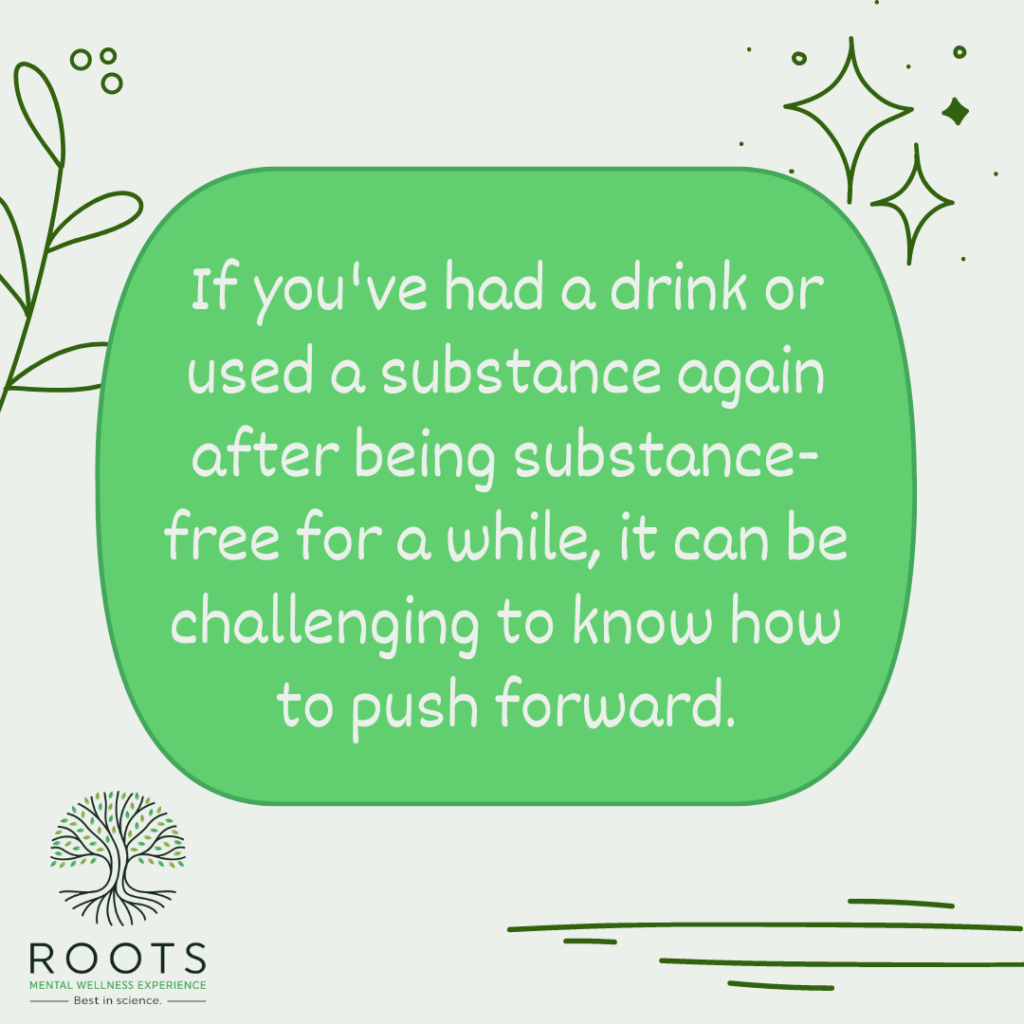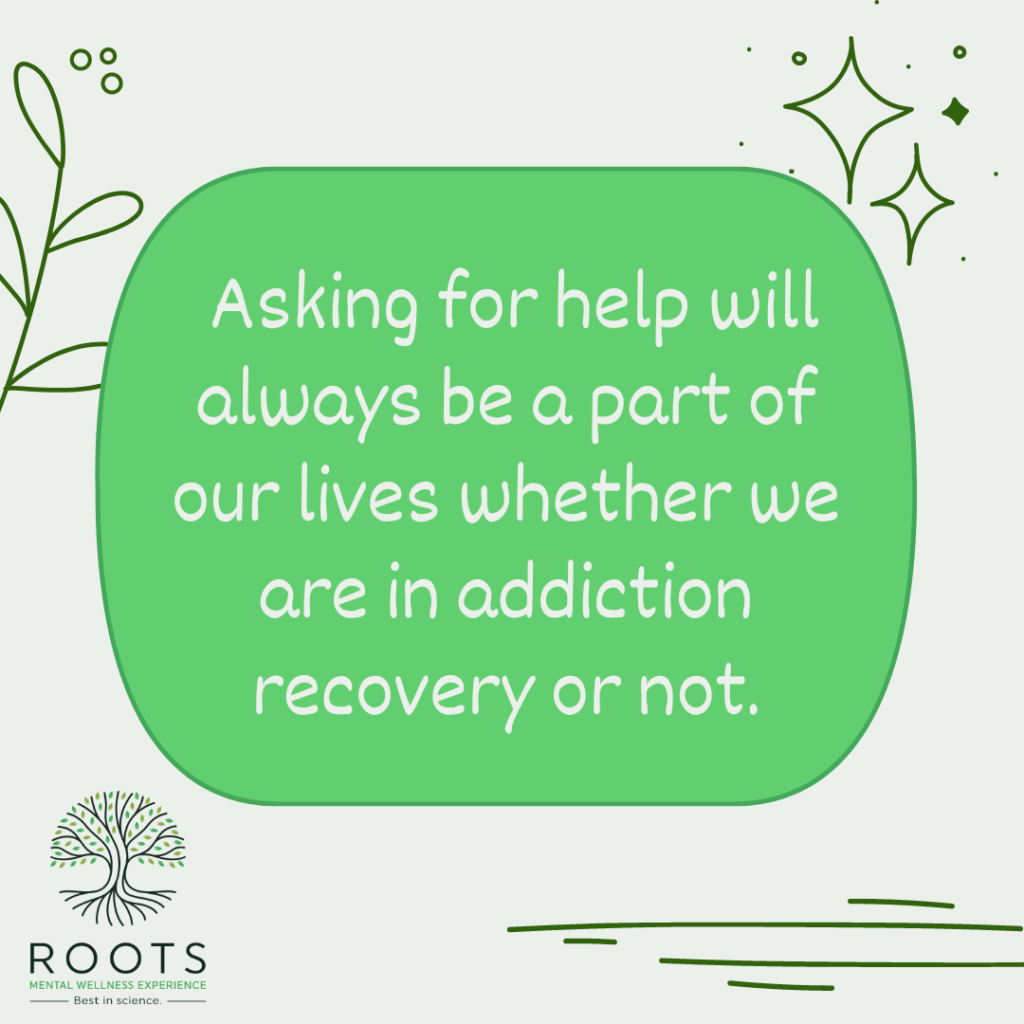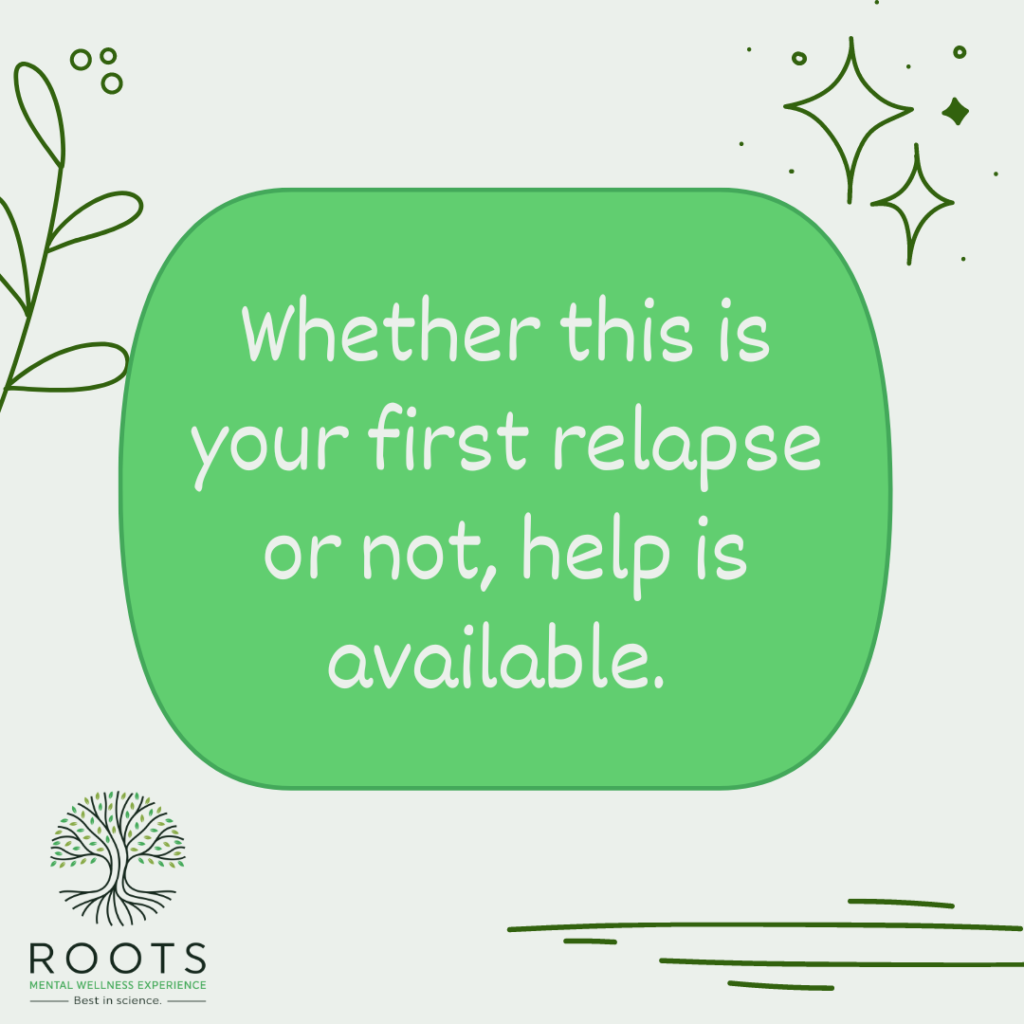Recent statistics on drug relapse show that more than 85% of people trying to recover from addiction return to substance use within the year following their rehabilitation or treatment. Moreover, research estimates that more than 60% of people in recovery relapse within weeks of starting addiction treatment.
Statistics on relapse don’t sound encouraging for someone who doesn’t know what to do after relapsing. However, it is important to understand that a long-term plan to prevent relapse is essential for lasting sobriety.
If you’ve had a drink or used a substance again after being substance-free for a while, it can be challenging to know how to push forward. Today’s article gives us some points on dealing with relapse and the difficult emotions and thoughts that come with it.

How Does A Relapse Happen?
Studies suggest that relapse is a gradual process. A recovering person often begins this return to substance weeks or even months before they retake the drug. The warning signs of relapse can be categorized into three: emotional, mental, and physical.
- Emotional Relapse: This happens when patients remember the feeling of euphoria when using substances. However, they may not be consciously thinking about it. Often, people in this phase deny the possibility of it happening despite their feelings.
- Mental Relapse: In this phase, the patient consciously thinks about using the drug or alcohol again. Internal struggle often happens in this state, which wears the patient down.
- Physical Relapse: The individual returns to substance use. Some experts divide this phase into lapse (initial drug use) and relapse (returning to uncontrolled use).
Identifying the signs for each phase and understanding what needs to be done are all critical in preventing relapse.
What To Do After Relapsing?
During a lapse or relapse, you or a loved one will most likely feel guilty and disappointed. This is normal, and this is not the end of your journey to recovery.

- Find Your Focus
You will feel guilt, disappointment, and other difficult feelings. These negative thoughts and emotions are a huge part of addictive thinking. Still, remember that having a lapse or relapse is a setback, but it’s not an all-or-nothing scenario. Pause, take a deep breath, and focus on what is going well, like being grateful for your recovery and the people who have helped you along the way. Remember that you can stop now, and focusing on self-critical thoughts and emotions will only push you further into relapse.
- Reach Out
If you are feeling overwhelmed, reach out to someone you trust and someone who knows about your situation. Knowing when and who to call for support will always be necessary for any crisis. It is quite normal to want to protect the feelings of those you love, but don’t think that you are alone in your struggle. Reach out and talk to someone.
- Ask For Help
In connection with the previous point, asking for help will always be a part of our lives whether we are recovering from addiction. Your addiction specialist is trained to understand that recovery is not a straight line and its course takes time. You might be hesitant to reach out to your health worker for those already in active treatment. However, letting them know about your re/lapse will make it easier for them to assist.

- Consider Returning To Treatment
This might be the time to go to treatment, whether you have been to one before or not. If you didn’t have any prior treatment, a Partial Hospitalization Program or other treatment programs could help you build the right structure and plans to navigate the possibility of relapse. For those who have been to rehabilitation, going back to treatment, like outpatient services, can help address unresolved issues that impede recovery and help in relapse prevention.
- Stay Accountable
Accountability often begins with accepting your reality and recognizing improvement points to better deal with your issues. What does accountability look like after a lapse or relapse? This can be in the form of revisiting and changing your mindset about recovery. Getting rid of your ambivalence toward your treatments and rehabilitation helps. Keeping a recovery journal can also aid in dealing with the problematic thoughts and feelings you might feel in navigating this relapse. Talking to someone you trust about your progress will also be encouraging.
- Recommit To Your Recovery
Another thing on what to do after relapsing is to treat your recovery as a committed relationship with your future self. This means you will need to constantly take steps to maintain and improve your recovery until you arrive at the best version of who you are. Create new routines and habits that will help you structure your recovery, like identifying triggers and how to deal with them healthily.

- Get More Involved With Community
A deeper involvement in a recovery community can be the optimal move after relapse. Being connected and surrounded by people who understand what you are going through means you will have access to plenty of support. You can also pay it forward and support those who need it. Mutual support communities foster the feeling of connectedness, which helps in the holistic recovery of a person who has experienced relapse or is in active addiction.
What Are The Treatment Options Available After Going Through A Relapse?
What to do when your partner relapses? The same principles we ran down apply. Lapses and relapses are part of recovery. Disappointment and guilt may overwhelm you and your loved one, but remember that you can do something about it. Whether this is your first relapse or not, help is available. Here are treatments you may consider.
Medications
Medications for controlling withdrawal symptoms and decreasing cravings are often necessary if a detoxification process applies to the case of relapse. These prescription medicines can help re-establish normal brain function to prevent future relapses. A specific drug is taken for severe cases and overdose to prevent significant organ damage.

Counseling And Therapy
Counseling and therapy help change behaviors and attitudes related to relapse and substance use. They can be conducted in an outpatient program or an inpatient one. Therapy sessions also improve and increase your life skills and provide support for long-term sobriety. Here are some of the methods or approaches you may encounter:
- Behavioral Therapy. Often done one-on-one, some of these therapies are dialectical behavioral therapy (DBT), cognitive behavioral therapy (CBT), and motivational interviewing (MI). They all aim to modify behavior, emotions, and attitudes related to addiction and relapse. These help a person participate in their recovery, maintain abstinence, and improve family dynamics and other close relationships.
- Group Therapy. This method provides a safe space for patients to relate to one another who are struggling with the same issues. This allows patients to offer insights and help others by building supportive and nurturing connections.
- Support Groups. These can be through mutual help groups (12-step programs), recovery high schools, and peer recovery support. As briefly mentioned, this type of support offers a safe environment for discussing personal struggles and issues related to addiction and relapse.
Get Post-relapse Treatment In Long Beach, California
Living with an active addiction puts you or your loved one in survival mode. Thus, not beating yourself up for setbacks will help maintain a positive outlook regarding recovery. Suppose you are looking for helpful information on what to do after relapsing. In that case, we at Roots Through Recovery are here to help. Here at Roots, we avoid a cookie-cutter view of creating treatment plans for our patients. We approach you or your loved one’s recovery based on specific situations, needs, and goals.
Embrace the culture of wellness with us at Roots, located at the heart of Long Beach–a city that offers a diverse community for healing the mind, body, and spirit. Visit us at 3939 Atlantic Ave, Suite 102, Long Beach, CA 90807, or call 562-249-5706 for immediate assistance.



